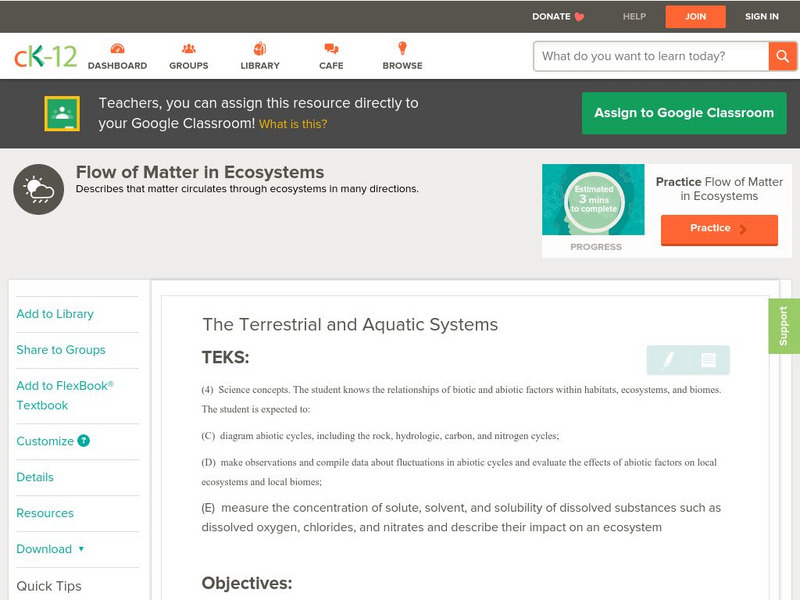Other
International Institute for Sustainable Development
The IISD--the International Institute for Sustainable Development--provides information on all aspects of sustainable development: business, climate change, economic policy, energy, and natural resources. Its website also includes...
TeachEngineering
Teach Engineering: Engineering for the Earth
Young students are introduced to the complex systems of the Earth through numerous lessons on its natural resources, processes, weather, climate and landforms. Key earth science topics include rocks, soils and minerals, water and natural...
Other
Abc Da Energia
ABC Da Energia describes the many ways that energy can be obtained and conserved. It explains different sources of energy, how each works, and how energy can be saved in our daily lives. Interactive energy-saving activities and games...
Alabama Learning Exchange
Alex: Conserve It to Preserve It
In this lesson from "The Friends of Auntie Litter", (www.auntielitter.org), conservation and describing ways to sustain natural resources will be explored. This lesson is one from the "Take Pride Statewide" series. *This lesson is...
Polk Brothers Foundation Center for Urban Education at DePaul University
De Paul University: Center for Urban Education: Natural Gas: An Energy Resource [Pdf]
"Natural Gas: An Energy Resource" is a one page, nonfiction, reading passage about how natural gas is located, drilled for, and sent through pipelines throughout the country to people's homes. It is followed by questions which require...
Polk Brothers Foundation Center for Urban Education at DePaul University
De Paul University: Center for Urban Education: Natural Gas: An Energy Resource [Pdf]
"Natural Gas: An Energy Resource" is a one page, nonfiction, reading passage about natural gas, its uses, and how it gets to homes. It is followed by constructed-response questions which require students to provide evidence from the...
TeachEngineering
Teach Engineering: Biorecycling: Using Nature to Make Resources From Waste
By studying key processes in the carbon cycle, such as photosynthesis, composting, and anaerobic digestion, students learn how nature and engineers biorecycle carbon.
University of St. Andrews (UK)
University of St. Andrews: Albert Einstein
A truly complete biography of the great man. Some adequate discussion of his theoretical and scientific work, but the accent here is on his personal life. Many anecdotes, many quotes from him, many references and hotlinks to other...
Other
Open2.net: Ecosphere
Designed by the Open University and the BBC, this website from Open2.net explores ecosystems. Included is a lengthy discussion on closed ecosystems and their importance to research, as well as a virtual ecosystem, an interactive showcase...
Cynthia J. O'Hora
Mrs. O's House: What Should Be Done About Oil and Gas Royalties?
Engage the classroom in studying about oil and gas royalties paid to the government, in some cases not paid, with resources drawn from leased land paid for by the government. Take research results and contact state and federal government...
PBS
Pbs Learning Media: Einstein: How Smart Was He?
This essay from the NOVA Web site explores the impact Einstein made on physics and most everything we know about the cosmos.
CK-12 Foundation
Ck 12: Earth Science: Flow of Matter in Ecosystems
[Free Registration/Login may be required to access all resource tools.] In this module, students will learn about the cycles of nature (water, carbon, nitrogen, and phosphorus) that support the flow of nutrient matter through an...
University of Texas at Austin
University of Texas: Human Environmental Interactions [Pdf]
Inspired by Hemispheres' 2004 Teachers' Summer Institute, People and Place: Human-Geographic Relations, this curriculum unit was designed to address human adaptation to and modification of the environment. How have humans adjusted to...









